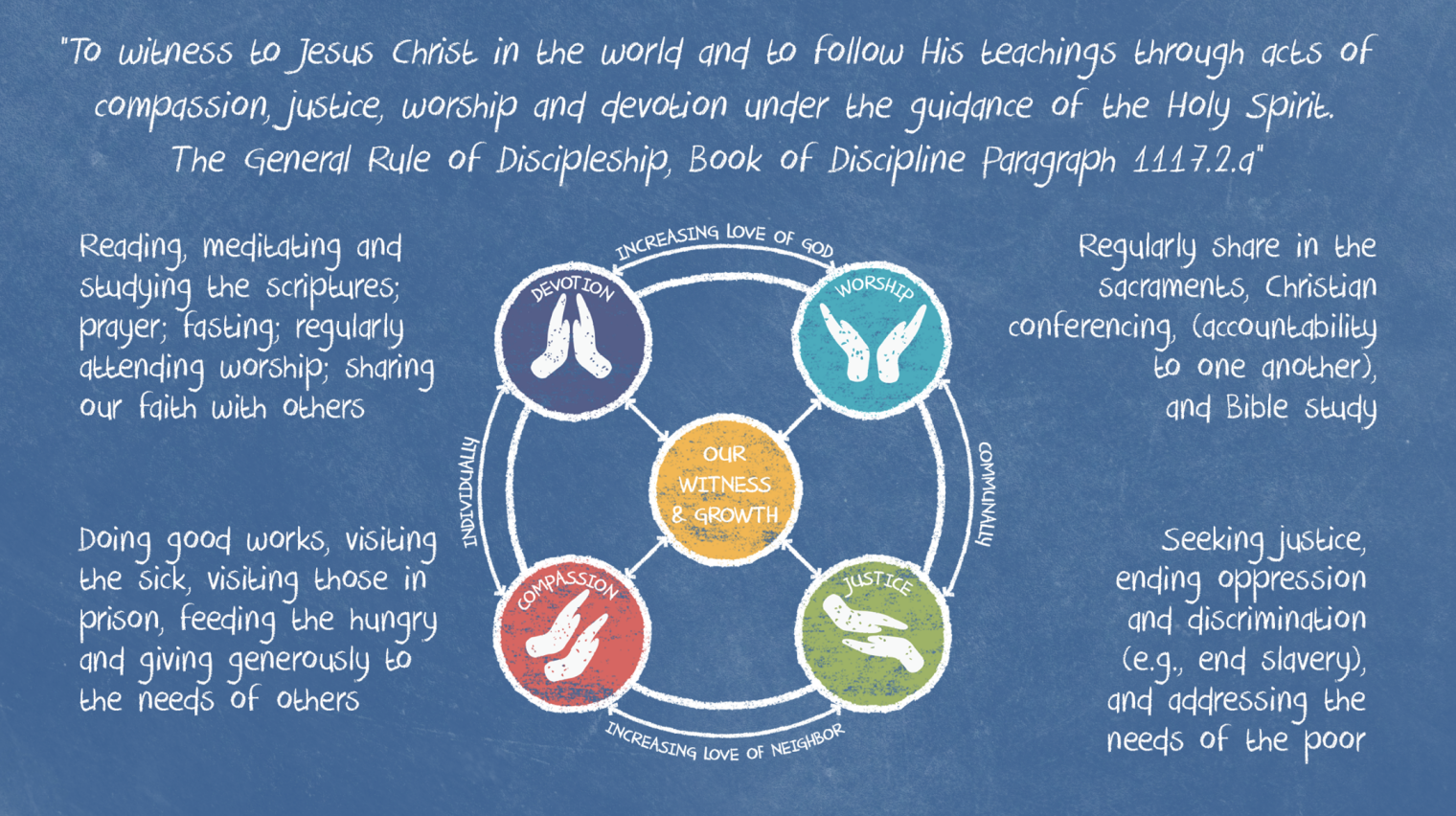06.03.22 | Leader Development, Congregational Development, Discipleship Formation
“Teacher, which is the greatest commandment in the Law?” Jesus replied: “‘Love the Lord your God with all your heart and with all your soul and with all your mind.’ This is the first and greatest commandment. And the second is like it: ‘Love your neighbor as yourself.’ All the Law and the Prophets hang on these two commandments.” ~Mark 12:28-34
"Therefore go and make disciples of all nations, baptizing them in the name of the Father and of the Son and of the Holy Spirit, and teaching them to obey everything I have commanded you. And surely I am with you always, to the very end of the age.” ~ Matthew 28:16-20
Deepening Discipleship creates paths for more people to witness Jesus Christ through acts of justice, compassion, devotion, and worship under the guidance of the Holy Spirit.
The mission of each United Methodist Church is to make disciples of Jesus Christ for the transformation of the world. Members of a vital church take responsibility for growing in faith by cultivating Christian practices; through the means of grace.
Vital churches have a working definition of what a disciple is, a biblically grounded and contextually relevant understanding of who Jesus is, an understanding of what maturing in discipleship looks like and provides simple, obvious and strategic steps for people at various stages of life and spiritual maturity to grow as followers of Jesus Christ for personal, local and global impact. In other words, churches that are vital have an intentional plan for following Christ as we transform the world.
Since 2018, we have uplifted the Rule of Discipleship as our shared definition of discipleship– rooted in the great commandment and great commission.

When combined with our Wesleyan theology of grace it is: to Witness to Jesus Christ and to follow His teaching through acts of justice, compassion, devotion, and worship under the guidance of the Holy Spirit.
We believe that salvation entails renewal of both individuals and the world. Our faithful response to God's saving grace has both a personal and social dimension as we grow in "holiness of heart and life." Our love of God is always linked with love of our neighbor, a passion for justice and renewal in the life of the world as we go onto perfection.
Compassion or compassionate service is showing kindness for another person (visiting the sick, preparing a meal for someone in need). Justice is an action that creates a change that makes things fairer and equitable and seeks to address the system/root of the concern.
Many churches struggle to see the difference between compassion and justice. This chart created by Discipleship Ministries, is not meant to be comprehensive nor is to give us a picture of what justice looks like. It is designed to help us to envision a first step from compassion toward justice.
For Wesley, a form of personal piety (devotion and compassion) unanchored in social holiness (worship and justice) is worth examining and reconsidering as we live the Gospel of Jesus Christ.
- Discuss how the scriptures connect with the Rule of Discipleship.
- Which means of grace do you engage with or talk about most often? Which feel like a stretch to you?
- Does your church have an intentional discipleship process? If so, does it include both personal piety (devotion and compassion) and social holiness (worship and justice)? If it doesn't have an intentional discipleship process, visit seeallthepeople.org for resources.
